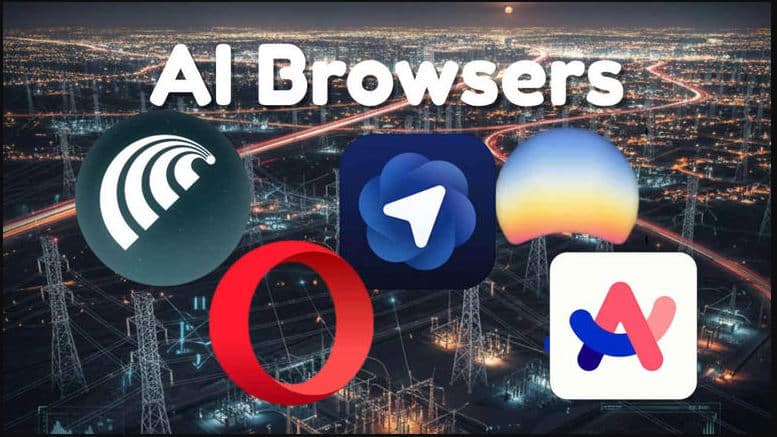AI Tools for Creating Automated Invoice Generation Systems: Transforming Business Financial Processes
In the fast-paced world of modern business, efficiency and accuracy are paramount. Invoicing, a critical yet often tedious process, has long been a bottleneck for companies of all sizes. However, the integration of artificial intelligence (AI) into invoice generation systems is revolutionizing how businesses handle their financial workflows. Automated invoice generation powered by AI not only streamlines operations but also minimizes errors, reduces costs, and enhances scalability. This article explores the role of AI in invoice automation, the technologies driving it, and the tools available to businesses today.
The Rise of AI in Invoice Generation
Traditionally, invoicing involved manual data entry, paper-based processes, and time-consuming reconciliation. Even basic automated systems required users to input data manually, with limited ability to adapt or learn. AI, however, introduces a new level of sophistication. By leveraging machine learning, natural language processing (NLP), and optical character recognition (OCR), AI-powered invoice systems can analyze, interpret, and generate invoices with minimal human intervention.
These systems are designed to handle tasks such as extracting data from receipts, identifying key details like dates and amounts, and populating invoice templates. They can also flag discrepancies, predict payment timelines, and integrate seamlessly with accounting software, making them indispensable for businesses aiming to optimize their financial operations.
Key Benefits of AI-Driven Invoice Automation
-
Enhanced Efficiency:
AI eliminates the need for repetitive manual tasks, allowing teams to focus on strategic work. For example, an AI tool can process hundreds of invoices in minutes, compared to hours or days with traditional methods. -
Accuracy and Error Reduction:
By automating data entry and validation, AI minimizes human errors. Advanced algorithms can cross-check information against historical records, ensuring consistency and compliance with tax regulations. -
Cost Savings:
Reducing labor costs associated with manual invoicing and minimizing errors that could lead to financial losses, AI systems offer a significant return on investment. -
Scalability:
As businesses grow, AI tools scale effortlessly. Whether handling 10 or 10,000 invoices monthly, these systems adapt to demand without requiring additional resources. - Improved Cash Flow:
Faster invoice processing means quicker payment cycles. AI tools often include features like automated reminders and payment tracking, accelerating receivables.
Core AI Technologies Behind Automated Invoicing
-
Optical Character Recognition (OCR):
OCR technology allows AI systems to scan and extract text from physical or digital documents, such as receipts or PDFs. This is the first step in converting unstructured data into actionable information. -
Natural Language Processing (NLP):
NLP enables systems to understand and interpret human language, making it possible to parse invoice details from emails, messages, or handwritten notes. -
Machine Learning (ML):
ML algorithms improve over time by learning from data. They identify patterns in invoices, predict payment behaviors, and adapt to new formats or edge cases. -
Chatbots and Virtual Assistants:
These tools assist customers and clients in querying invoices, making payments, or resolving issues, enhancing user experience and reducing support workload. - Predictive Analytics:
AI can forecast payment delays or detect fraud by analyzing historical data, helping businesses manage financial risks proactively.
Top AI Tools for Automated Invoice Generation
Several AI-powered platforms cater to different business needs, from small startups to large enterprises. Here are some notable examples:
-
QuickBooks (Intuit):
While primarily known for its accounting software, QuickBooks uses AI for expense tracking and invoice creation. Its integration with OCR and ML helps automate data entry and categorization. -
Zoho Invoice:
Zoho’s AI-driven features include smart invoicing, where the system automatically fills in client details and estimates based on past interactions. It also offers real-time alerts for late payments. -
FreshBooks:
FreshBooks combines AI with user-friendly automation, allowing businesses to generate invoices quickly and track project progress, which can be directly linked to invoicing. -
InvoiceASAP:
This platform specializes in AI invoice processing, using machine learning to extract data from invoices and match them with purchase orders or contracts, reducing reconciliation time. - Ada (AI Invoice Assistant):
Ada employs NLP to interpret invoice data from emails or attachments, automating the creation of invoices and providing customer support via chatbots.
For more customized solutions, businesses can leverage open-source tools like Python libraries (e.g., Pytesseract for OCR) or platforms like TensorFlow to build AI models tailored to their specific needs.
Use Cases Across Industries
-
Small Businesses:
Freelancers and small enterprises benefit from AI tools that simplify invoicing for clients. For instance, an AI-powered app can generate professional invoices from a receipt photo, ensuring timely payments. -
Large Enterprises:
Multinational corporations use AI to manage complex supply chains and global invoicing. Tools like SAP S/4HANA integrate AI for real-time invoice processing and compliance checks. -
E-Commerce:
Online retailers rely on AI to handle thousands of invoices daily, from order confirmations to vendor payments, ensuring seamless operations. - Healthcare and Legal Services:
These sectors use AI to manage client billing and insurance claims, where accuracy is critical. AI systems can parse medical reports or legal documents to create invoices automatically.
Challenges and Considerations
While AI offers transformative potential, challenges remain:
- Data Security: Sensitive financial data must be protected from breaches. Businesses should prioritize tools with encryption and compliance certifications (e.g., GDPR, SOC 2).
- Integration Complexity: Migrating to AI systems may require compatibility with existing ERP or accounting software, demanding careful planning.
- Initial Setup Costs: Implementing AI tools can involve upfront investments in software, training, and infrastructure.
- Human Oversight: AI is not infallible. Human checks are still necessary for complex cases or edge scenarios, such as non-standard invoice formats.
The Future of AI in Invoicing
Looking ahead, AI in invoicing will likely become even more advanced. Emerging trends include:
- Blockchain Integration: For secure, tamper-proof invoice records and smart contracts that automate payments.
- Real-Time Processing: AI systems will handle invoices as they are received, reducing delays.
- Global Expansion: Tools will support multi-language and multi-currency invoices, catering to international businesses.
- Predictive Insights: Beyond generating invoices, AI will offer deeper analytics, such as identifying cost-saving opportunities or forecasting cash flow.
Conclusion
AI-powered automated invoice generation systems are no longer a luxury but a necessity for modern businesses. They offer unprecedented efficiency, accuracy, and scalability, enabling companies to focus on growth rather than paperwork. While challenges like integration and security exist, the long-term benefits far outweigh the hurdles. As technology evolves, businesses that adopt AI-driven invoicing will gain a competitive edge, ensuring smoother financial operations and stronger client relationships. Whether you’re a small business owner or part of a large enterprise, exploring AI tools today can pave the way for a smarter, more agile financial future.







